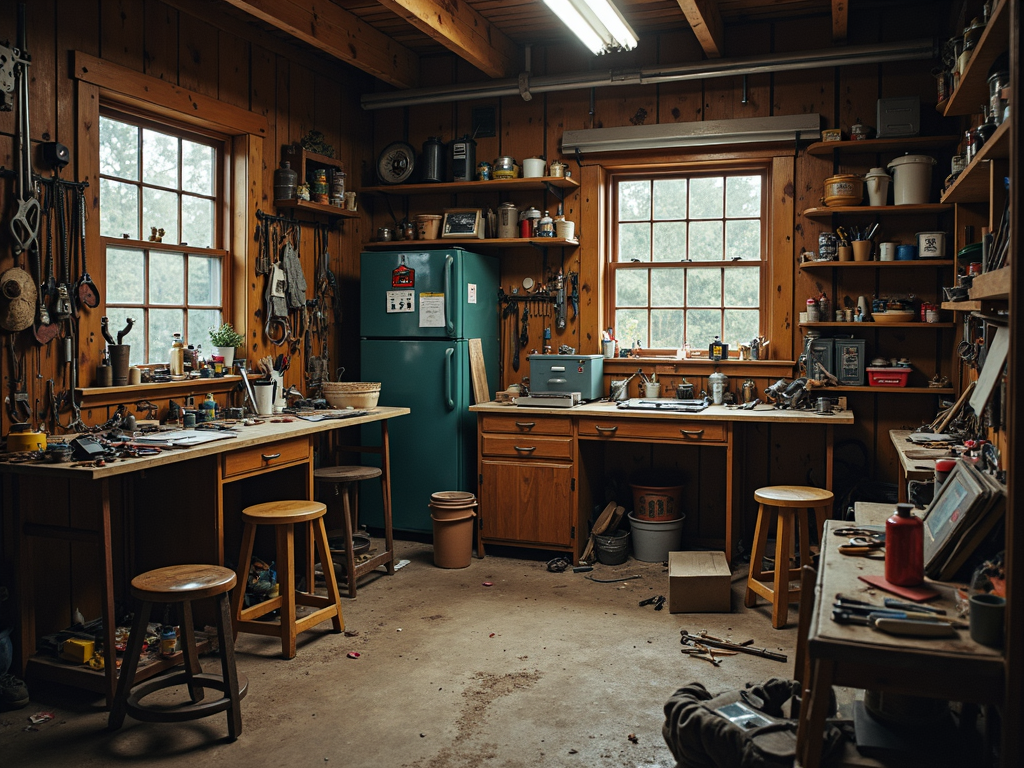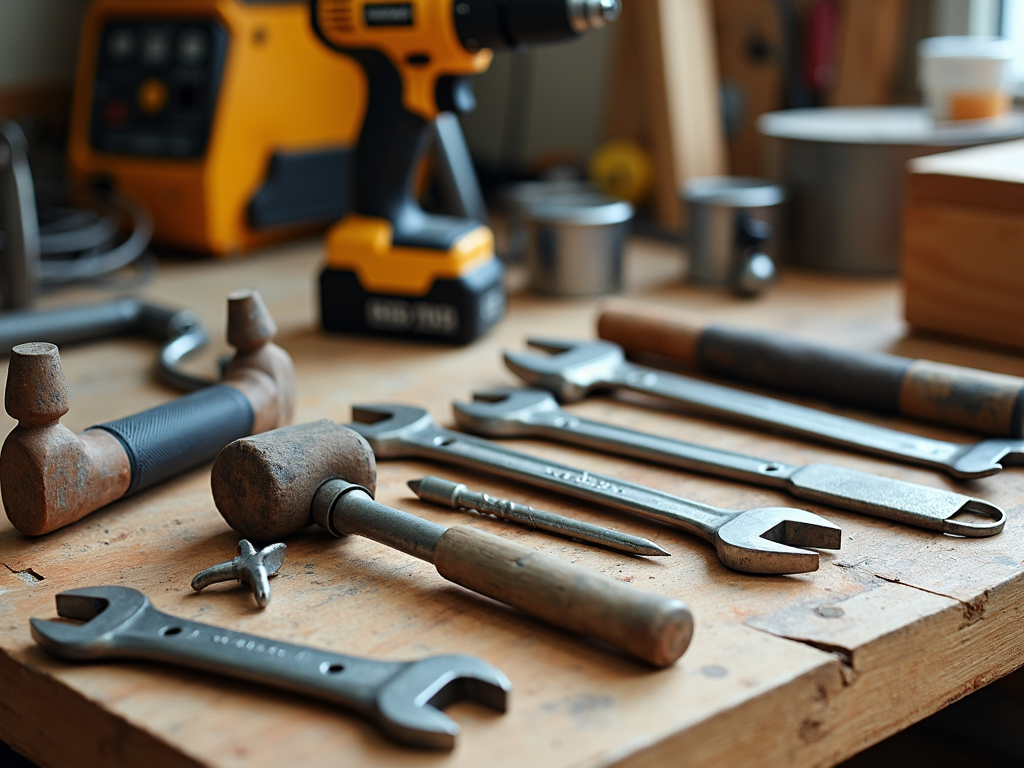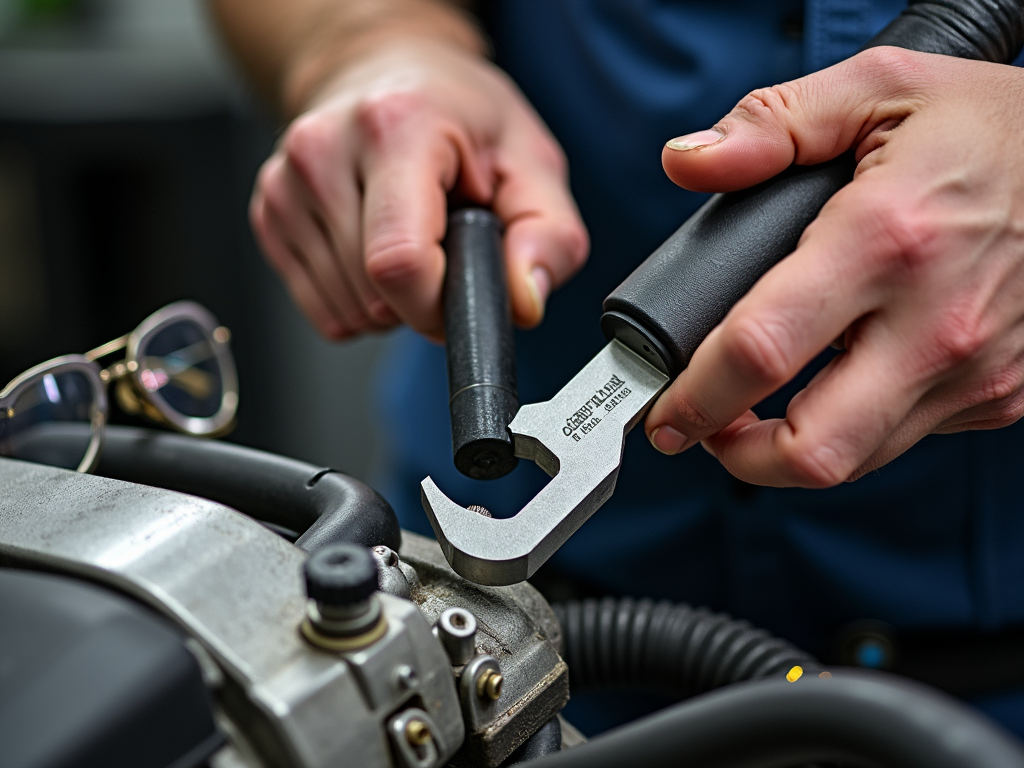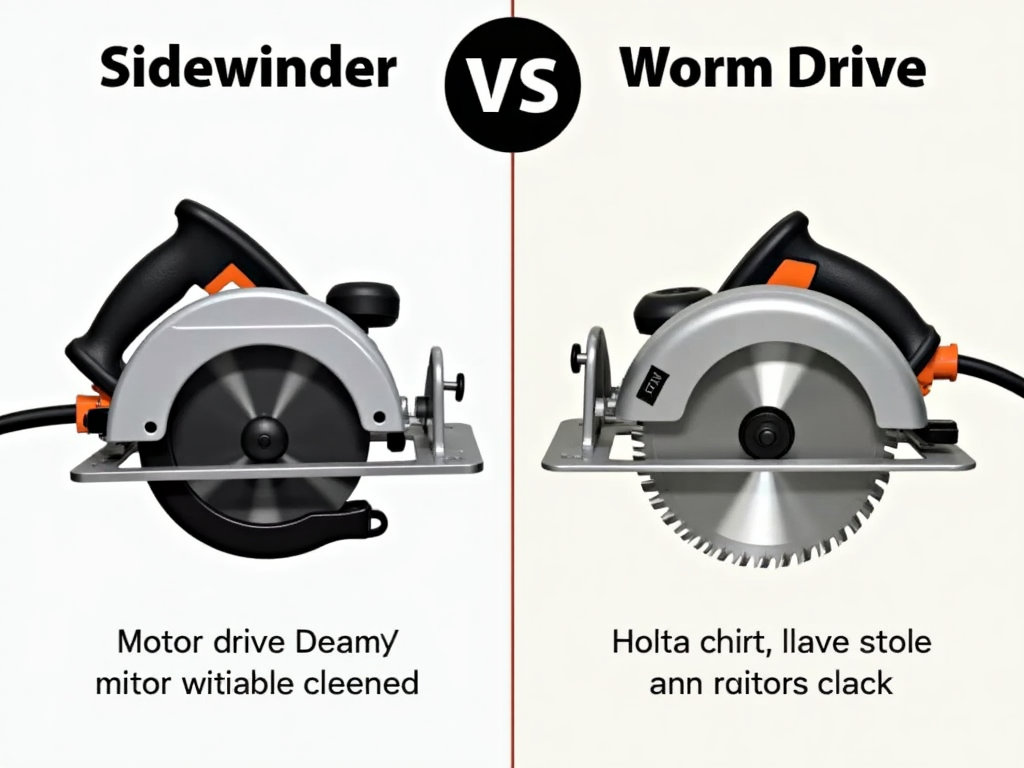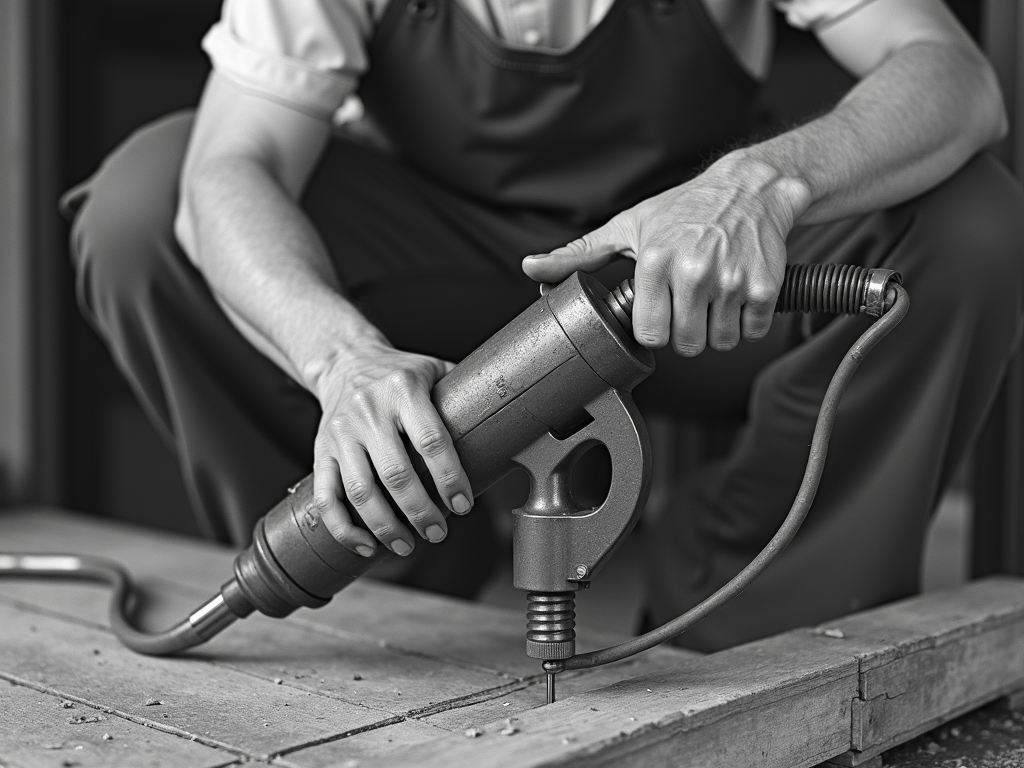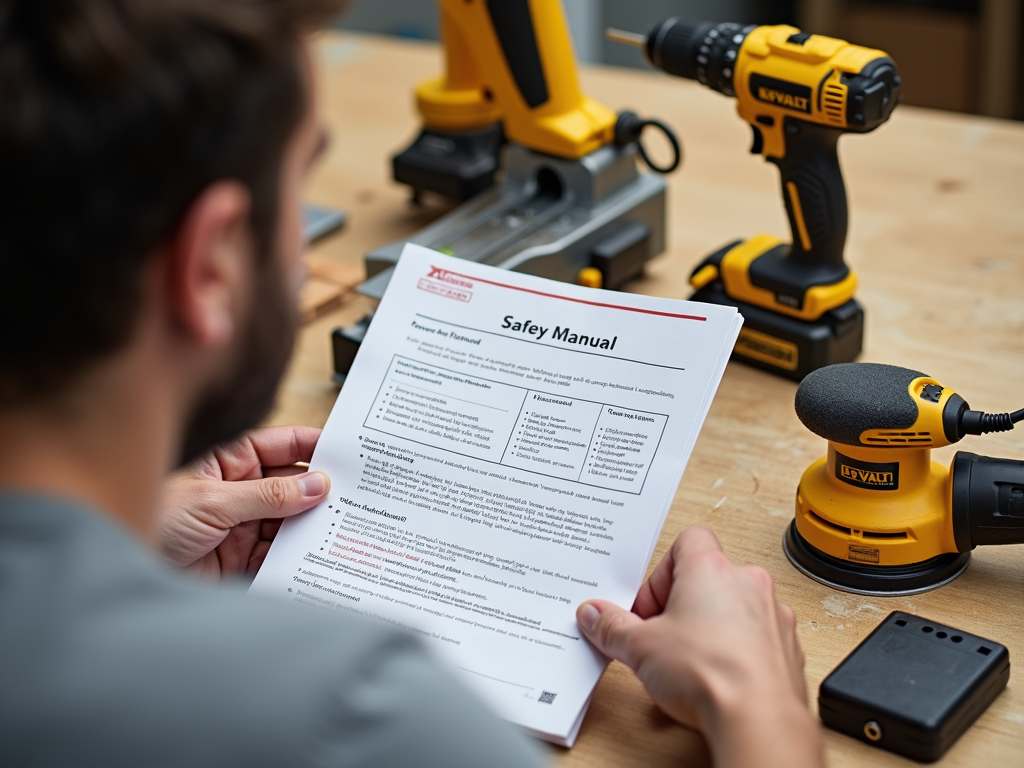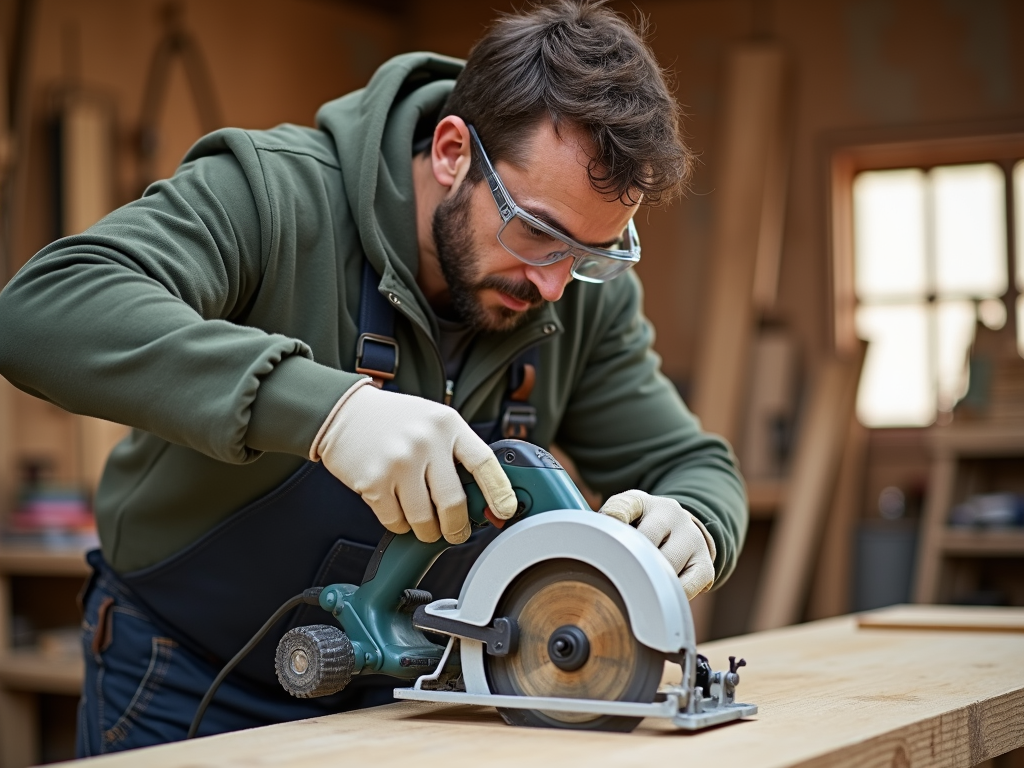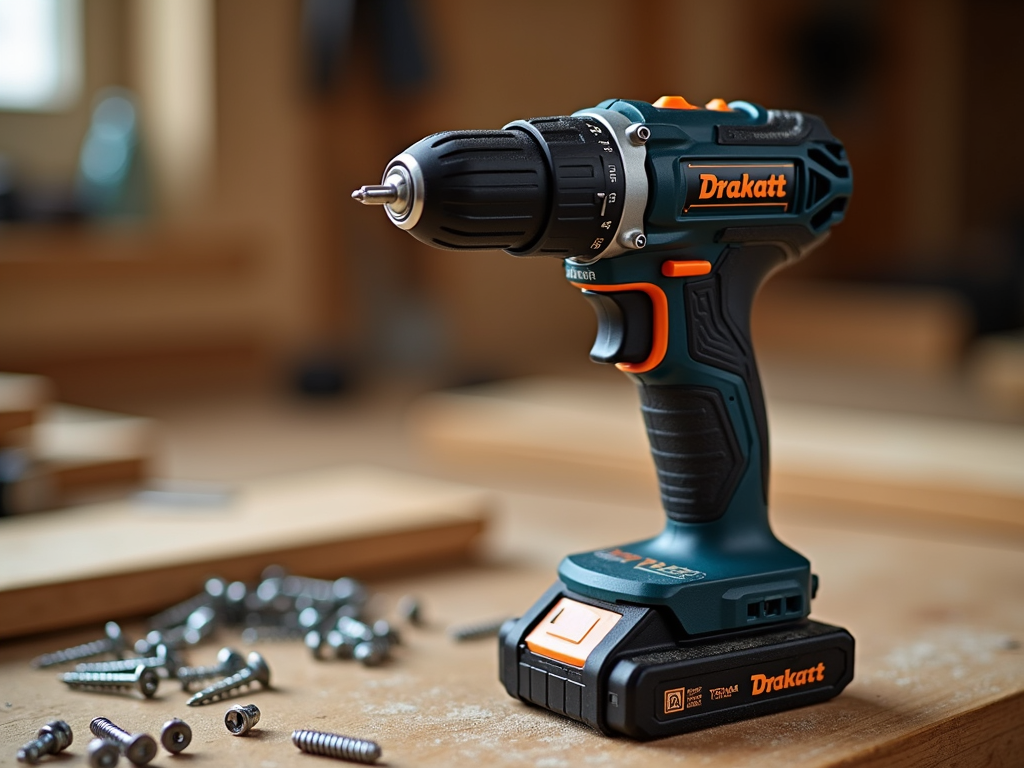In the world of craftsmanship, a well-organized workshop is the foundation of productivity and creativity. For those working in small spaces, efficient tool organization becomes not just a luxury, but a necessity. This comprehensive guide will walk you through the process of transforming your compact workshop into a model of efficiency, where every tool has its place and every project flows smoothly.
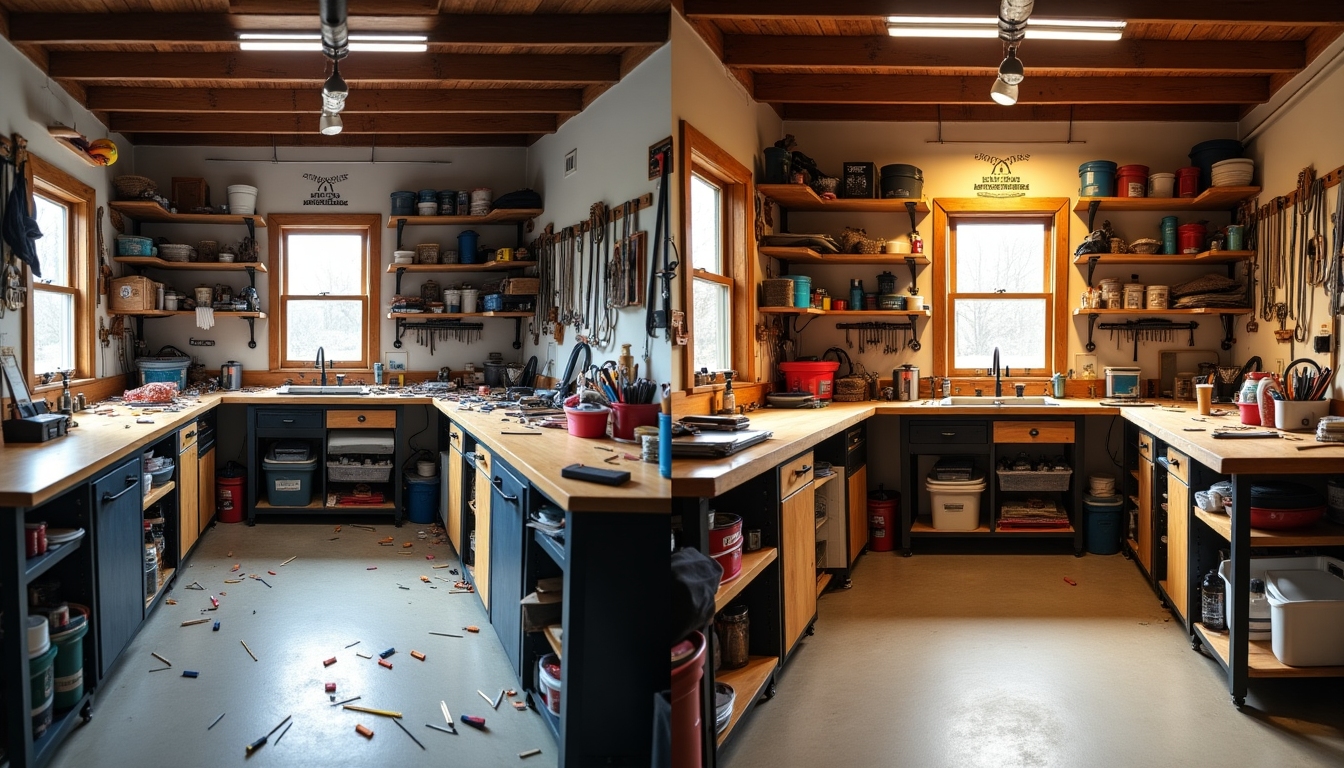
Why Tool Organization Matters in Small Workshops
In a small workshop, every square inch counts. Proper tool organization:
- Maximizes limited space
- Reduces time spent searching for tools
- Enhances safety by minimizing clutter
- Boosts overall productivity
- Creates a more enjoyable working environment
By implementing effective organization strategies, you'll not only save time and frustration but also extend the life of your tools and potentially prevent accidents.
Assessing Your Space and Tools
Before diving into organization solutions, take stock of what you have:
- Inventory your tools: Make a list of all your tools, categorizing them by type (e.g., hand tools, power tools, measuring instruments).
- Evaluate your space: Measure your workshop dimensions and note any fixed elements like windows, doors, or built-in shelves.
- Identify high-traffic areas: Determine which areas you use most frequently to prioritize accessibility.
- Consider your workflow: Think about how you move through your space during projects to optimize tool placement.
This assessment will serve as the foundation for your organization plan, ensuring that your solutions are tailored to your specific needs and space constraints.

Tool Storage Solutions for Small Workshops
When it comes to storing tools in a compact space, creativity and efficiency are key. Here are some proven solutions:
1. Pegboards: The Versatile Classic
Pegboards are a staple in workshop organization for good reason:
- They utilize vertical space effectively
- Allow for customizable tool arrangements
- Make tools easily visible and accessible
Pro Tip: Paint your pegboard a light color to enhance visibility and create outlines for each tool to ensure they always return to their designated spot.
2. Magnetic Strips: For Metal Tools
Magnetic strips are excellent for:
- Storing frequently used hand tools
- Keeping small metal items like drill bits organized
- Saving drawer and counter space
3. Stackable Bins and Drawers: For Small Parts
Use clear, stackable bins or drawer units for:
- Screws, nails, and other fasteners
- Small hand tools
- Accessories for power tools
Label each bin or drawer clearly for quick identification.
4. Wall-Mounted Racks: For Long-Handled Tools
Keep brooms, rakes, and other long-handled tools off the floor with wall-mounted racks. This not only saves space but also prevents tripping hazards.
5. Mobile Tool Carts: Flexibility on Wheels
A rolling tool cart can be a game-changer in a small workshop:
- Provides additional storage
- Can be moved to where you need it
- Often includes a work surface for added functionality
Choose a cart with a mix of drawers and open shelves for versatility.
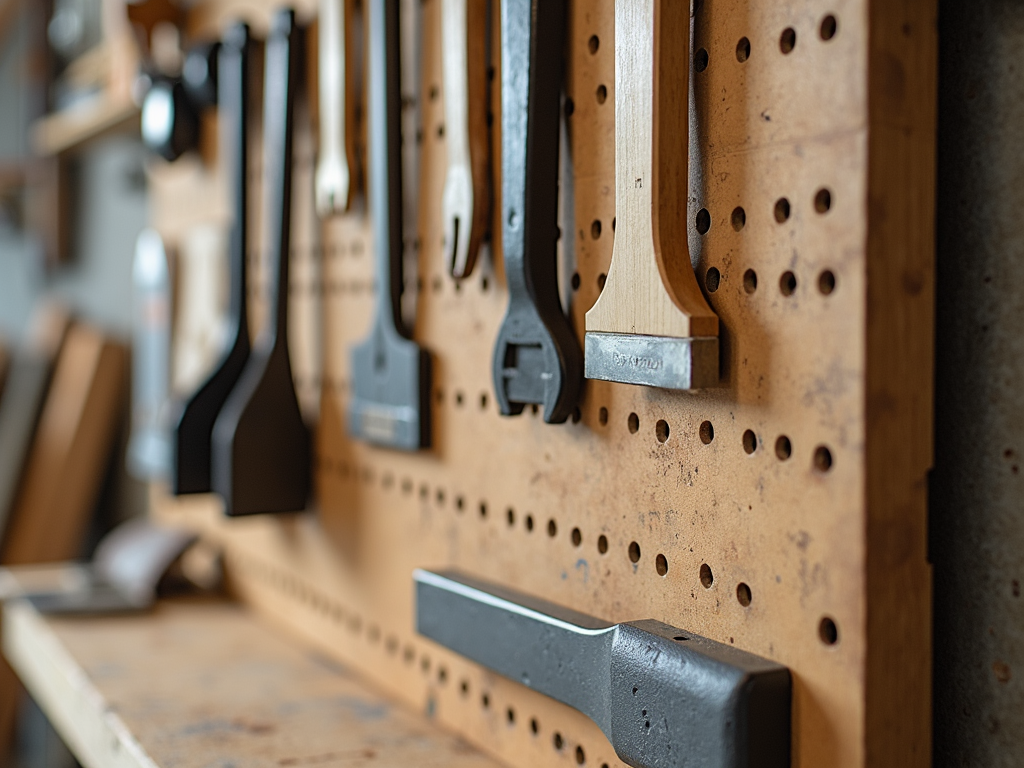
DIY vs. Store-Bought Solutions: Weighing the Options
When organizing your workshop, you'll face the choice between DIY solutions and store-bought systems. Each has its merits:
DIY Solutions:
- Often more cost-effective
- Can be customized to your exact needs
- Provide a sense of accomplishment
Store-Bought Systems:
- Typically quicker to implement
- Often come with warranties
- May offer more polished aesthetics
Consider a hybrid approach: use store-bought basics and supplement with DIY customizations for a balance of convenience and personalization.
Organizing by Tool Type: Strategies for Efficiency
Grouping tools by type or function can significantly improve your workflow. Here are some strategies:
- Frequency of Use: Place most-used tools within easy reach, less frequent ones in less accessible areas.
- Project-Based Grouping: If you often work on specific types of projects, group the tools needed for those projects together.
- Size and Weight: Store heavier tools lower to the ground for safety and ergonomics.
- Power vs. Hand Tools: Designate separate areas for power tools and hand tools to streamline your work process.
Remember, the best organization system is one that makes sense to you and supports your unique workflow.
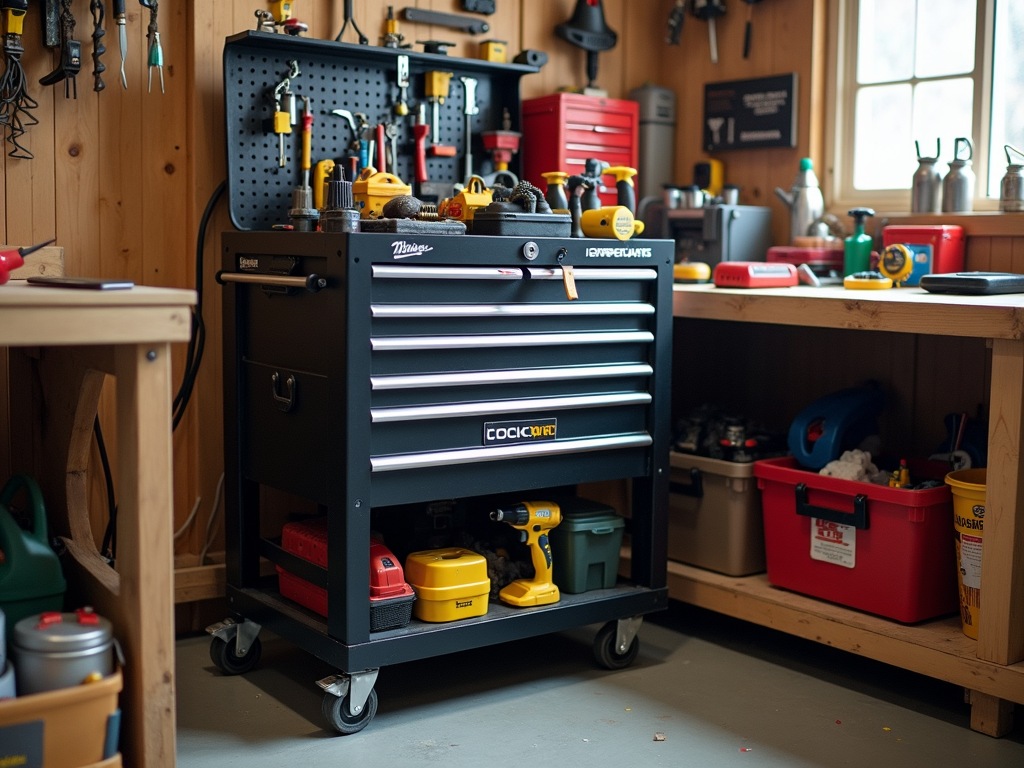
Maintenance and Upkeep: Keeping Your System Effective
An organized workshop requires ongoing effort to maintain. Implement these habits:
- Return tools to their designated spots after each use
- Regularly declutter and donate or sell unused tools
- Clean your workspace at the end of each workday
- Periodically reassess your organization system and make adjustments as needed
By making organization a habit, you'll ensure your workshop remains a productive and enjoyable space.
Personal Insights: Lessons from a Seasoned Craftsman
After years of working in small workshops, I've learned a few valuable lessons:
- Invest in quality storage solutions: Cheap organizers often lead to frustration and wasted time.
- Label everything: Clear labels save time and reduce the learning curve for anyone else using your space.
- Embrace vertical space: In small workshops, thinking vertically can dramatically increase your storage capacity.
- Keep a workshop notebook: Document your organization system, including where specialty tools are stored, to avoid future headaches.
- Be flexible: Your needs will change over time, so design your system with adaptability in mind.
These insights have transformed my small workshop from a cluttered mess into a streamlined haven of productivity.

Summary: The Power of an Organized Workshop
Organizing tools in a small workshop is more than just tidying up; it's about creating an environment that fosters creativity, efficiency, and safety. By assessing your space, implementing smart storage solutions, and maintaining your system, you can transform even the tiniest workshop into a powerhouse of productivity. Remember, the key to success lies in finding an organization method that works for you and your unique needs. Start small, be consistent, and watch as your workshop—and your craftsmanship—reaches new heights.
Related organizing tools in a small workshop:
- DIY Workshop Organization: Budget-Friendly Solutions for a Clutter-Free Workspace
- The Ultimate Guide to Tool Maintenance
- Safety Tips for DIY Auto Repair: A Comprehensive Guide
- Comprehensive Guide to Circular Saws for Beginners
- Essential Electrical Tools for Wiring and Installations
- How to Clean Your Deck with a Power Washer: A Step-by-Step Guide
- Top Ergonomic Power Drills for Reduced Fatigue
- Electric vs. Gas Power Washers: Which Wins?
- Rotary Tools for Jewelry Making: A Comprehensive Guide
- The Ultimate Guide to Power Tool Safety
- Care and Maintenance of Your Power Tools: A Guide for Woodworking Enthusiasts
- Key Features to Look for in Cordless Power Tools: Your Ultimate Guide
